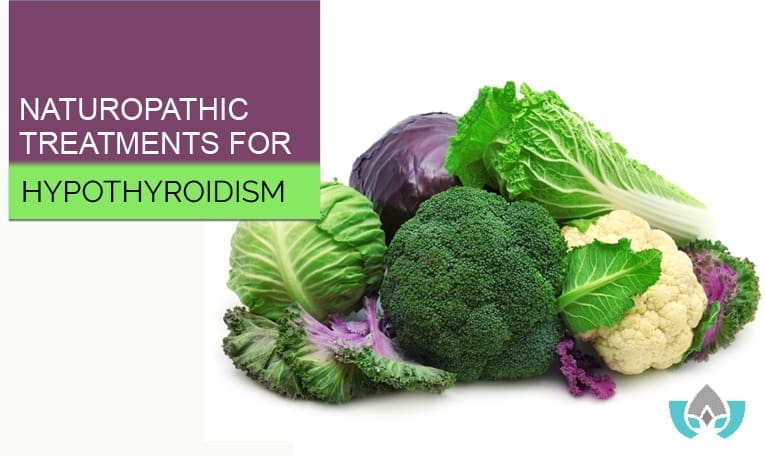
The human body is an intricate system of interdependent organs, glands, and tissues.
Each of them plays an integral role in maintaining your overall health.
As a naturopathic thyroid doctor in Mississauga, your thyroid is one of my particular interests.
There are a number of different issues that can arise with it, but today we’re going to look at hypothyroidism.
What is hypothyroidism?
What are the causes and warning signs of hypothyroidism?
And what can be done to manage it through naturopathic methods?
Let’s take a look.
What Is Hypothyroidism?
Your thyroid is a small, butterfly shaped gland located in the front of your neck.
It’s part of your endocrine system, a system of hormone producing organs and glands.
Thyroid hormones, in particular, control your metabolism and growth, and play a role in the function of your heart, muscles, and digestive system.
If you have hypothyroidism, you have an underactive thyroid.
This means it doesn’t produce enough thyroid hormones to maintain optimal health.
This hormonal imbalance can cause a number of symptoms.
What Are The Warning Signs Of Hypothyroidism
Symptoms of hypothyroidism tend to develop slowly, often over a few years.
Some may be subtle and easily overlooked.
But knowing the warning signs of hypothyroidism could help detect and take appropriate actions in time.
Let’s take a look at a few key warning signs of hypothyroidism.
1. Fatigue
Despite getting enough rest, hypothyroidism often manifests as persistently exhausted feeling.
People with an underactive thyroid often feel tired and find it challenging to complete everyday tasks.
RELATED: Chronic Fatigue Naturopathic Doctor In Mississauga
2. Weight Gain
Hypothyroidism can slow down your metabolism.
You may experience unexpected weight gain even without any change in diet or physical activities and find it harder to lose it.
RELATED: Naturopathic Doctor For How To Lose Weight And Keep It Off
3. Sensitivity To Cold
Your body’s ability to regulate temperature can be affected by hypothyroidism.
This can make you more susceptible to cold temperatures and less tolerant of chilly environments.
4. Constipation
Constipation and sluggish digestion are common in people with hypothyroidism.
The movement of food through the digestive tract can be slowed down due to decreased activity of the thyroid gland.
RELATED: Naturopathic Doctor For Digestive Problems In Missisauga
5. Brain Fog And Mood Swings
People with hypothyroidism report having trouble with concentration and memory, often referred to as brain fog.
In addition, underactive thyroid can be associated with mood swings.
This may present as depression, anxiety, irritability, and a reduced ability to manage stress.
6. Dry Skin And Brittle Hair
Your thyroid plays an important role in maintaining healthy skin and hair.
Skin tends to be dry, rough, and sometimes even scaly in hypothyroidism.
Hair may become thin, brittle, and prone to excessive hair loss.
7. Hoarse Voice
Thyroid gland may affect your vocal cords.
If you don’t produce enough hormones, your vocal cords can become swollen or inflamed.
8. Puffy Face
When your thyroid gland doesn’t produce enough hormones, it can disrupt your body’s fluid regulation.
This can result in puffiness in your face, in particular around your eyes, cheeks and jawline.
What Are The Most Common Causes Of Hypothyroidism?
While there can be various factors contributing to this condition, some causes are more common than others.
The most common causes of hypothyroidism are:
- Hashimoto’s thyroiditis
- Having had thyroid surgery
- Pregnancy
- Pituitary gland disorders
- Having had radiation therapy, such as for some cancers
- Certain hyperthyroidism treatments
- Certain medications
- Congenital thyroid conditions
- Lack of iodine
RELATED: Streetsville Adjunctive Cancer Care Naturopathic Doctor
Regularly having your thyroid hormones checked can help keep track of your thyroid health.
How Common Is Hypothyroidism?
Thyroid issues pose a significant health concern worldwide, with different degrees of severity.
In Canada, it’s estimated that approximately 10% of Canadians 45 years or older are affected by some form of thyroid dysfunction.
Hypothyroidism is the most common thyroid disorder.
Women are more likely to develop this condition.
The risk increases noticeably after the age of 60.
The development of hypothyroidism can also be influenced by hormonal changes during pregnancy and postpartum period.
Can Hypothyroidism Cause Anemia?
Hypothyroidism is a common cause of anemia.
Hypothyroidism can disrupt how your blood cells are produced and how long they live.
This can lead to decreased hemoglobin concentrations, which is associated with anemia.
Thyroid hormone, which regulates red blood cell formation in bone marrow, plays an important role.
When your thyroid hormone levels are low, they may not be able to stimulate your bone marrow to produce enough red blood cells, which can lead to anemia.
Moreover, hypothyroidism may have an impact on iron metabolism, a key component in the production of red blood cells.
As a result, absorption of dietary iron from the gastrointestinal tract can be compromised.
This may lead to iron deficiency anemia, which is one of the top 5 most common nutrient deficiencies in North American women.
RELATED: Naturopathic Solutions For Anemia
Naturopathic Remedies For Hypothyroidism
Thyroid hormone replacement therapy is standard medical treatment for hypothyroidism, but this doesn’t necessarily address the root cause of the issue.
On the other hand, there are several naturopathic remedies that can help manage your hypothyroidism, and in some cases even reverse it.
Let’s take a look at them below.
1. Eat A Hypothyroid Diet
Eating a hypothyroid diet can help your thyroid do its job and alleviate hypothyroidism symptoms.
A hypothyroidism diet includes whole and unprocessed foods like vegetables, fruits, lean proteins, beans and legumes, nuts, seeds, and whole grains.
However, it’s a good idea to avoid goitrogenic foods.
These are foods high in goitrogens, which are organic substances that can interfere with your thyroid function.
These include:
- Soy based foods like tofu, tempeh, edamame, or soy milk
- Sweet potatoes
- Pine nuts
- Strawberries
- Corn
- Pears
- Peanuts
- Lima beans
- Peaches
- Pears
- Spinach
- kale
- Bok choy
- Broccoli
- Brussels sprouts
- Cauliflower
- Cabbage
- Horseradish
- Turnips
You might notice these are otherwise considered healthy foods.
This is one of the reasons why naturopathic nutritional counselling, and naturopathic medicine in general, can be so complex.
2. Iodine
Iodine is essential for thyroid hormone synthesis.
So, including more iodine in your diet can help manage hypothyroidism.
The most abundant source of iodine in North American diets is iodized salt.
However, regular table salt is heavily processed containing undesirable additives and voided of trace minerals, so it is better to avoided it.
Also, too much salt is bad news, so instead, consider these foods:
- Seaweed
- Fish
- Shellfish
- Beef liver
- Dairy products
3. Omega 3 Fatty Acids
Hypothyroidism is often associated with inflammation.
Since omega 3 fatty acids are known for their anti inflammatory properties, they can help.
Good sources of these essential fatty acids include fish, nuts and seeds.
Furthermore, omega 3 fatty acids are found to be helpful for cardiovascular health.
This is important, since if you have hypothyroidism you’re at a higher risk of heart disease.
4. Selenium
Like iodine, your thyroid uses selenium to synthesize thyroid hormones.
So, if you have a selenium deficiency, it can aggravate your hypothyroidism.
Research indicates that selenium supplementation may help reduce thyroid antibodies in your blood, decrease inflammation in the thyroid gland, and enhance thyroid hormone production.
Selenium rich foods include:
- Brazil nuts
- Seafood
- Whole grains
- Organ meats
5. Zinc
Your thyroid needs zinc to produce thyroid hormone as well.
Zinc regulates thyroid stimulating hormone, or TSH.
This signals your thyroid gland to produce hormones.
It also plays a role in the conversion of inactive thyroid hormone T4 to its active form T3.
Be careful with zinc supplements, though – too much can be harmful.
Instead, try getting more zinc from your diet, including:
-
- Oysters
- Beef
- Poultry
- Pumpkin seeds
- Legumes
- Cashews
- Chickpeas
- Dark chocolate
Can Hypothyroidism Be Fatal?
Hypothyroidism can cause serious issues, but it’s not usually considered fatal.
However, in very rare cases, severe and chronic hypothyroidism can lead to a life threatening condition called myxedema coma.
This is a critical medical condition where your thyroid hormone levels become extremely low.
Symptoms occur such as decreased mental function, hypothermia, low blood pressure, drowsiness, and respiratory distress.
If you suspect somebody is experiencing a myxedema coma, get them to the nearest emergency room as soon as possible.
Book Your Appointment With The Mindful Healing Clinic Today
When it comes to managing hypothyroidism, exploring naturopathic treatments can be an excellent complement to conventional medical approaches.
If you’re considering naturopathic treatments for hypothyroidism, I’m Dr. Maria Cavallazzi, ND, here at the Mindful Healing Clinic, we’re here to help.
Book your appointment with The Mindful Healing Clinic today.
Until next time,
Dr. Maria Cavallazzi, N.D
Mindful Healing Naturopathic Clinic
Mississauga, ON L5M 1L7
(905) 819-8200
► https://g.page/MindfulClinicNaturopathic
Dr. Maria Cavallazzi is a medical doctor from Colombia where she practiced as a family physician for 8 years until she moved to Canada 16 years ago and became a naturopathic doctor in Mississauga.



